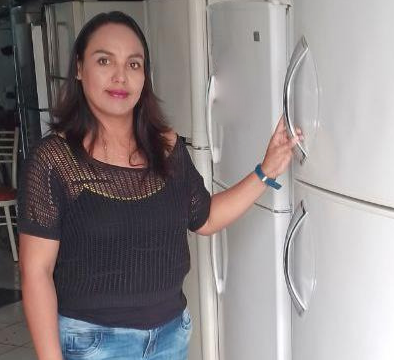
- admin
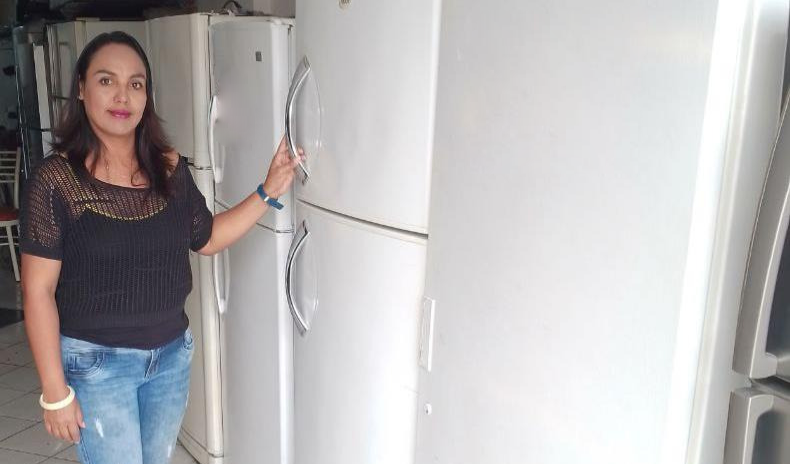
Yexira: a woman entrepreneur working hard to live a better life
For Yexira Yalili Salazar, the four years she has been in business with her partner have been a quite a challenge. The company Multiservicios y Repuestos Construfrío 36, which today has its premises in Lima began “with just a briefcase of tools, a lot of will, perseverance and desire to excel”. In terms of material things, they didn’t have much, except “an alliance between a Peruvian and a Venezuelan, where each one, little by little, contributed new ideas and material and economic resources.”
For Yexira, the only thing that kept them going was faith and the hope that things would improve along the way, a certainty that began to take shape in their country of origin when the economic situation in Venezuela became very difficult. The situation prompted her to move to Peru with her family in 2018 to start a new chapter. “We sold everything we had. Somehow, deep inside me I knew that there was no going back, that it would be a journey that was as long as it was definitive. Fortunately, we were well received” she says, “because I couldn’t work, my three-year-old son was sick with asthma for six months and with a complicated health condition…”
It was not until a year later, through USA for IOM’s training programs for entrepreneurs, and after having acquired the first seed capital, that the business began to improve and to incorporate new services. “In 2020 and 2021 we had other trainings led by IOM and more seed capital,” she tells us. “We were so happy with this new training, we were able to incorporate new business expansion tools, such as identifying potential customers, assessing the competition, suppliers, we learned to do market research, to manage social networks… To say that we are deeply grateful to the whole IOM team isn’t enough. Then came the mentoring sessions, which gave us tools to strengthen ourselves, where we learned personal development strategies, social and professional growth tools to contribute the best of ourselves to the host community. But they were also important as a woman and a migrant, since I have experienced inequality in my own entrepreneurship and work environment. This was the biggest and most enriching challenge I have had in my life because I have learned to improve my self-esteem, to make different decisions and most importantly: to continue looking for new opportunities that improve my well-being. One of the most valuable things I learned during the mentoring is to shape my life with the resources that I have at my disposal, in the place where I am, and with the opportunities that I can get, with the sole goal of being happy and having a better quality of life.”
By: Nora Rodriguez
Essayist and CEO of Architects of Happiness

Female migrant leaders advocate for female migrants
- admin
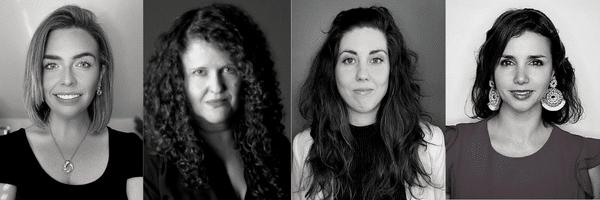
Female migrant leaders advocate for female migrants
The face of migration is changing. Over the last century, millions of people were forced to leave their countries of origin, with women following male relatives along the journey. Today, women outnumber men along most migratory routes, with many traveling alone. This makes them more vulnerable to the predatory forces along the
migration routes. This new scenario requires not only a profound reconstruction of the host societies, but also new perspectives will help provide more meaningful assistance and promote action.
To commemorate the International Migrants Day on December 18, USA for IOM held the first “Meeting of Migrant Women Leaders”, during which our CEO, María Moreno, spoke with global female leaders who left their country of origin. The event, moderated by the essayist and CEO of Architects of Happiness Nora Rodríguez, included the participation of Dr. Nadia Szeinbaum, Innovation Scientist at Beyond Meat, and former NASA fellow, and Liliana Mor, Director of Strategic Alliances and Development of Pro Mujer.
Hosting conversations with female leaders who themselves migrated is key to understanding the femiznation of migration. Dr. Nadia Szeinbaum discussed ways to better integrate migrant women into the host countries. “What I know about my culture,” she mentioned, “has a certain flavor, a very particular color that is Hispanic, Latin American, focused a lot on connecting with other people, on my music and my technical ability, so when I felt exposed to many cultures, I started learning from them. This allowed me to understand their codes, pay attention to details, and also learn to work from that place.”
For María Liliana Mor, Director of Strategic Alliances and Development of Pro Mujer, it is urgent to launch collaborative work between the countries to incorporate means and resources that make migratory routes safer places, but also to provide human accompaniment to make creation of new roots a common goal, for example, through supporting entrepreneurship for refugee and migrant women.
Both María Liliana and Nadia recognize the importance of a global talent characterized to a considerable extent by the impact that migrating had on their lives, characterized by the social sense, the commitment to personal values to advance in decisionmaking and a great adaptability and ability to connect with truly diverse people, which is a common denominator in most people who migrate.
The essayist and CEO of Architects of Happiness Nora Rodríguez, who moderated the event, and who works as a social mentor in the USA for IOM’s Entrepreneurship in Movement program, emphasized the importance of finding these skills and talents in each of the stories of women who migrate because they are the starting lines to build a new life in another place.
In closing, María Moreno urged both leaders, from their deep understanding of the fundamental values of the global community, from their own sensitivity to human and social needs, to share a message with migrant women directly. Both women agree that preserving cultural ties while working to build a new life is critical to success and mental health. “Your family is the world,” says Szeinbaum. “And I say this from personal experience,” adds the Director of Alliances for Pro-Mujer, “there are moments when you feel like you are someone else and you yearn for certain things. And a family doesn’t necessarily have to be a biological one.” Migration isn’t about severing connections, but rather about building new ones.
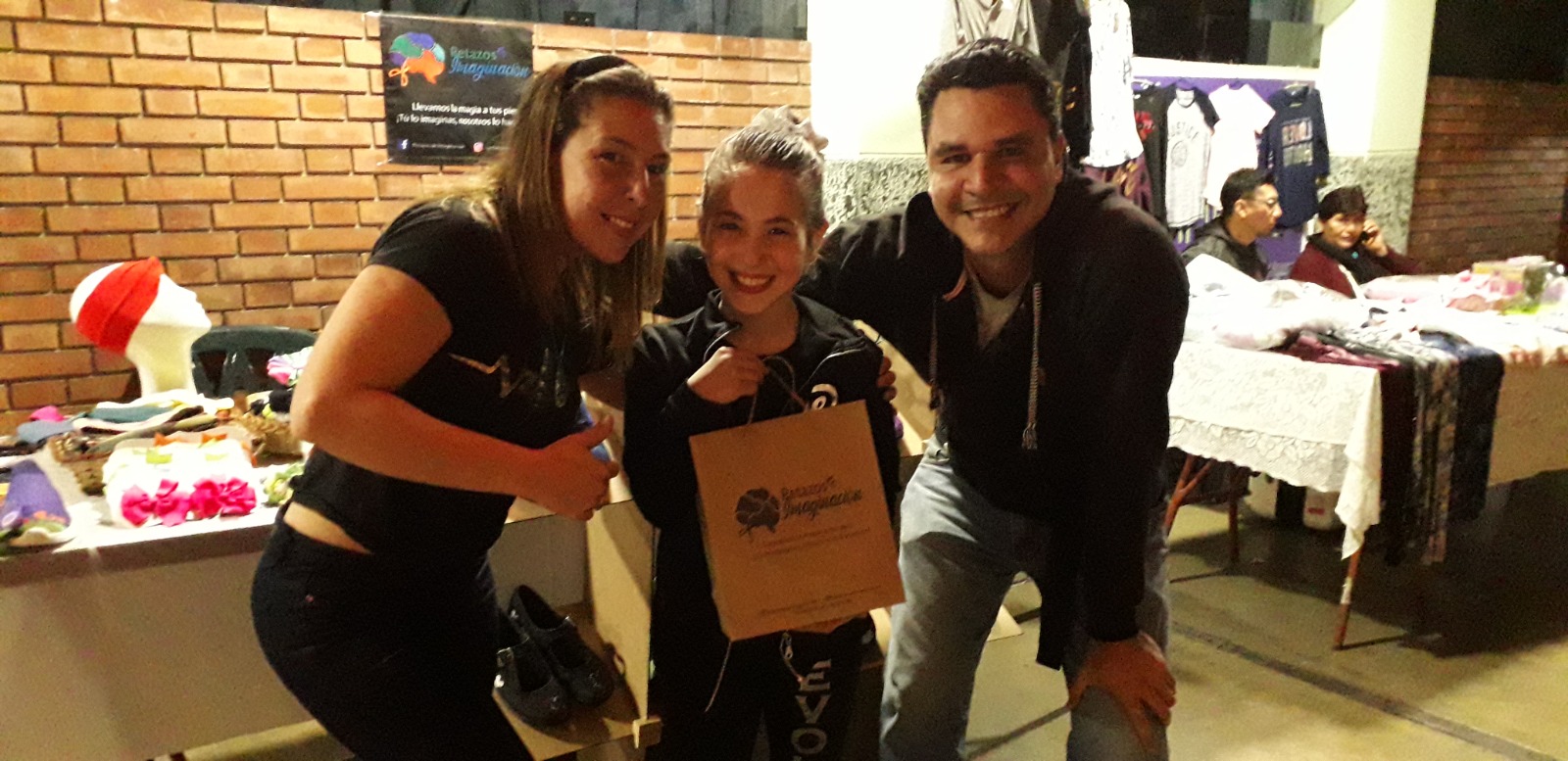
Imagining Something New To Learn And Start Again
- admin
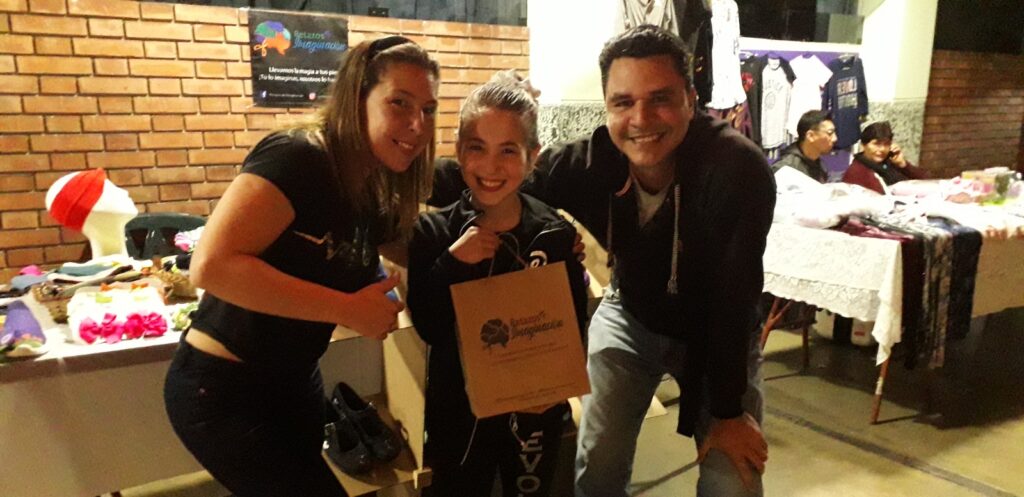
Imagining Something New To Learn And Start Again
When Scarlet Pambianchi decided to take the step of migrating, she did so with great expectations, although she was aware that it would not be an easy path. From the first moment, her inner drive was to give her family a better future, which obviously included financially helping the people who had remained in the country of origin. Although her first destination was Mexico, the unexpected accident of a relative and her complications disrupted all her plans, so she decided to change her destination to Peru, where she wanted to create her own company.
Since her specialty is artistic gymnastics, a friend of hers offered her and her partner to move to the city of Lima to work in the sports area, with an interesting economic offer. But when they arrived at their destination, her promise was diluted, and after discovering that nothing was as she had been promised, she decided to focus on the idea of creating an entrepreneurship with more persistence.
Scarlett was aware that her own business had to be something as necessary as it was original, so when she saw clearly that her entrepreneurship would be focused on handmade footwear, her project began to take shape minute by minute. She tells us how even starting from the ignorance of her field, the exploration was fascinating to her, since it united those components that are fundamental for her: illusion, imagination and creativity. However, she and her partner soon realized that they needed training to really shape the business idea they both had.
“And IOM has been a blessing with its comprehensive training, from how to start and improve a business, to financial education, and mentoring for socio-emotional strengthening. Because many times we think that an entrepreneurship refers only to the fact of producing, of being only aware of the financial aspect, that what is produced is everything, and it turns out that sometimes it is overlooked that, as migrants, internally we remain empty , and thus there are no forces for entrepreneurships. That’s why I appreciate the integration of mentorships so much! And not only because it made me see that to sustain a business it is necessary to start from the heart, but because I am convinced that this is the best medicine we have ever had”.
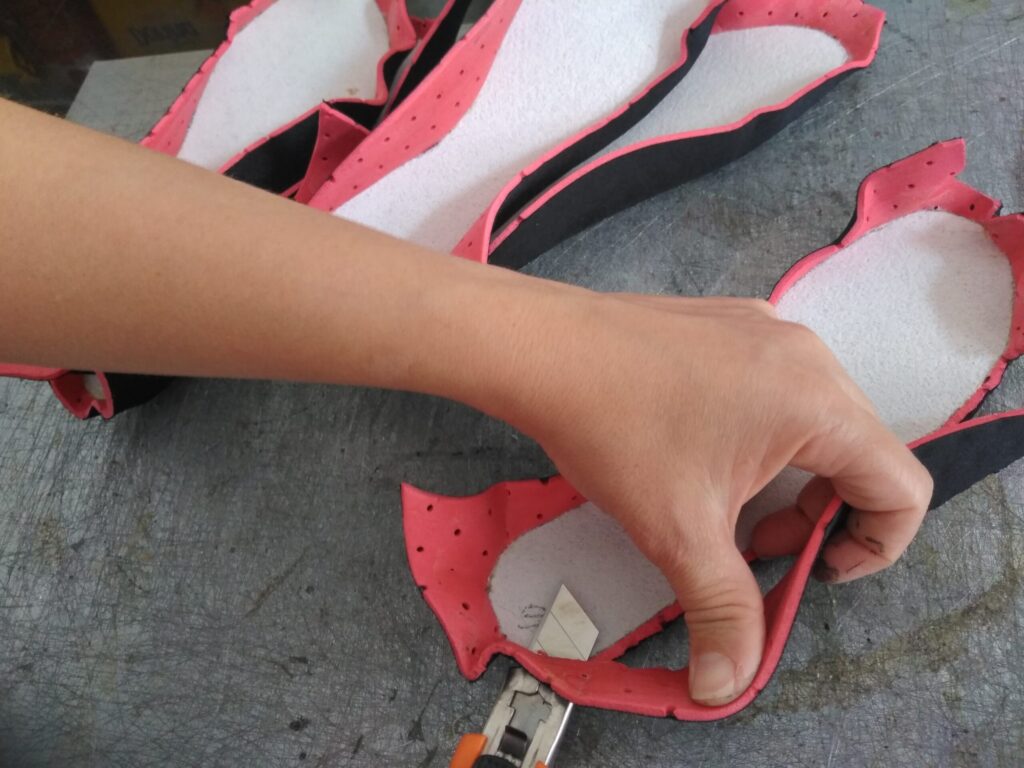
Scarlet’s company is called Retazos de Imaginacion S.A.C. It specializes in manufacturing handmade shoes with personalized designs, and it is, as its creators say, 80% handmade, but 100% impregnated with love.
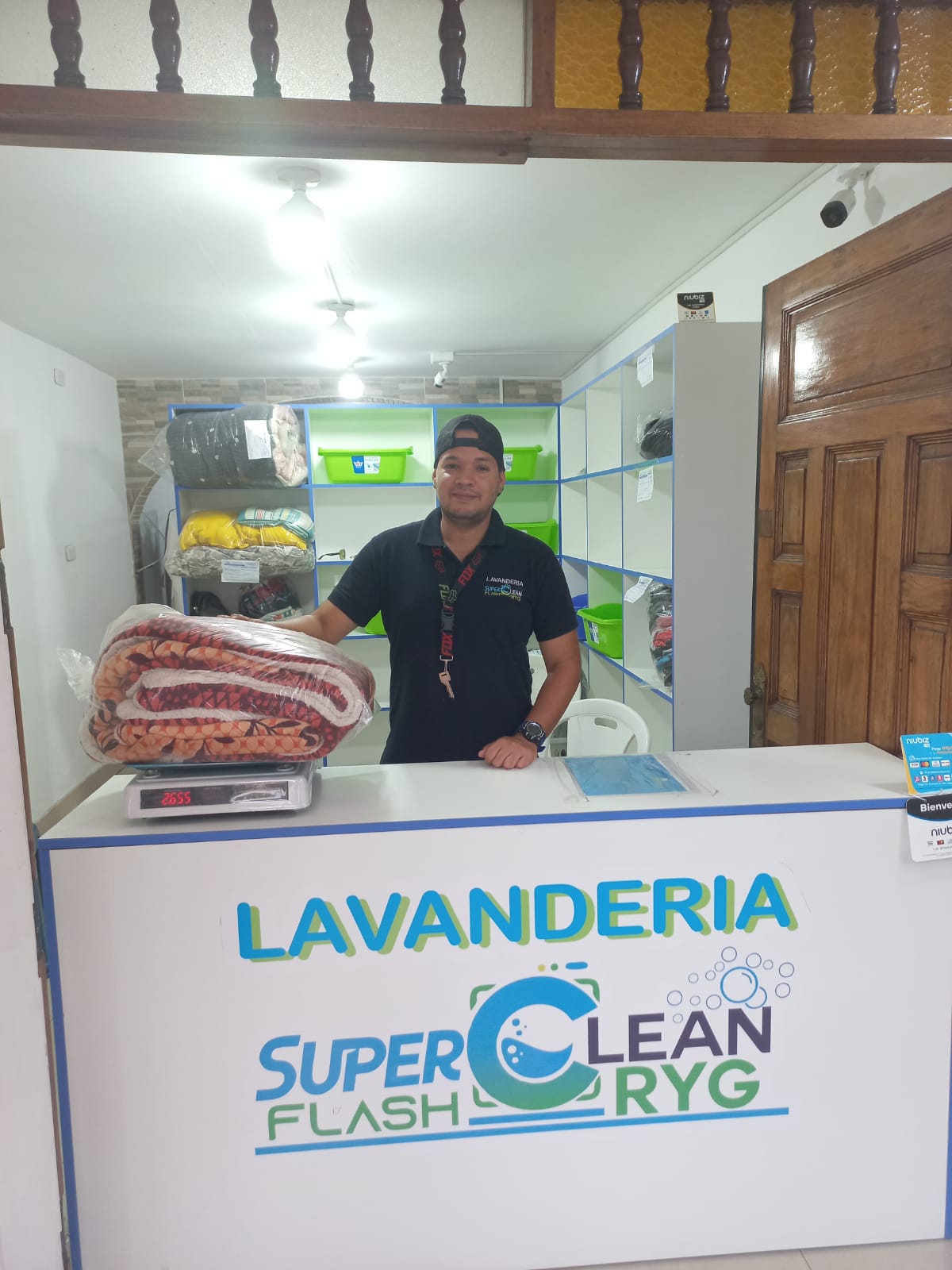
Creating Good Connections To Expand A Business
- admin
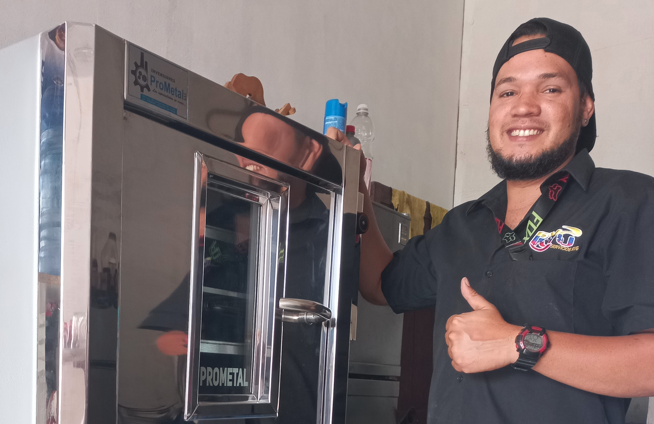
Creating Good Connections To Expand A Business
For Gustavo Alejandro Herrera, the decision to migrate was not an easy one. It took him a year of reflection to leave a large part of his family in Venezuela. From his first company in Trujillo, Cambios RYG, destined to send remittances to his country, he felt valued and respected by his neighbors, although the first few months were economically complicated. The most important thing in that early period was saving money, so for six months he restricted himself to eating practically everything, except the essentials, unlike the way of life he was used to.
Having set a goal helped him to apply it to his company as well. His growth strategy was to set small goals and meet them under any circumstances. Gustavo is convinced that entrepreneurships have to somehow show the values of its manager. That is why he wants his clients to feel that being Venezuelan has education as a mark, and he considers it essential for business.
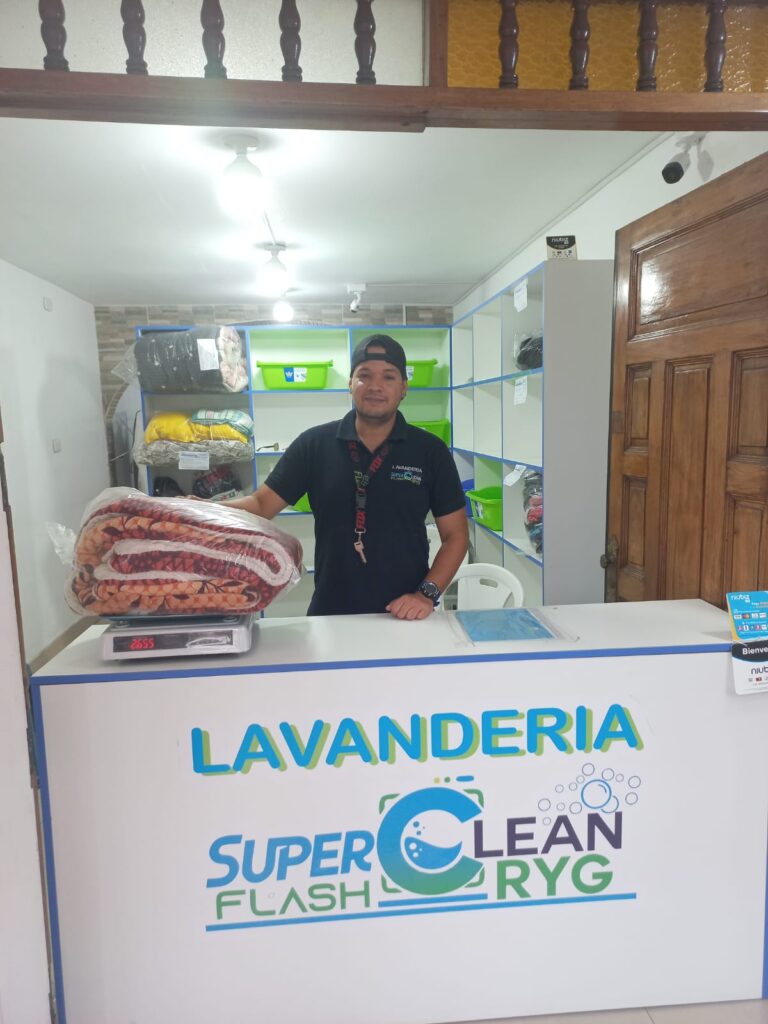
And not only because he considers that in certain areas it is not enough to work hard and make an effort, but that more values must be provided, such as honesty or sincerity. “No one likes,” he says, “when the person you give your money to send to another country doesn’t act politely and seriously. I understand how you may feel, because if I can help my family myself I will feel good, but that does not mean that I give my savings to just anyone.”
For Gustavo, joining the IOM program was the springboard he needed for basic issues such as learning how to legalize businesses in another country, in addition to other basic strategies.
However, for him it has been essential to strengthen himself to handle difficult situations, as he learned with mentoring.
“I realized that to endure a business, the strong ties that are within us are as important as the new ties with people whom you share with day to day, so I try to break the prejudices that exist with Venezuelans” .

For Gustavo, social intelligence is key for business, and he defines himself as a person willing to help, be respectful and collaborate with the people around him. He believes that this makes a difference when there are strong migration processes. Gustavo has decided to create another business that also benefits local people, so he has just opened a laundry, Lavandería Super Flash Clean RYG, and has the serious intention of opening two more soon, although “step by step”, as he says.
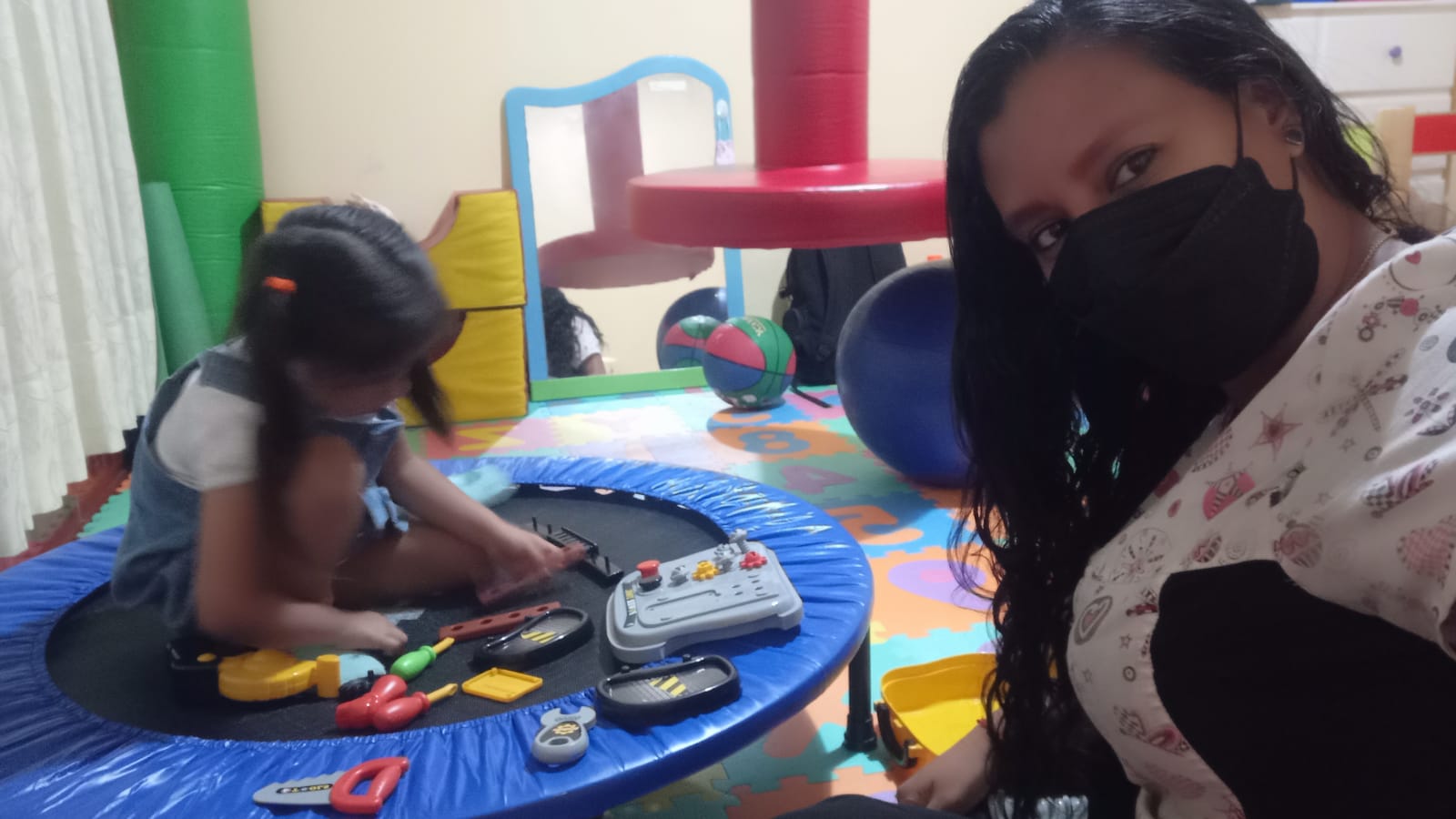
Creating An Entrepreneurship To Improve The Lives Of Others
- admin
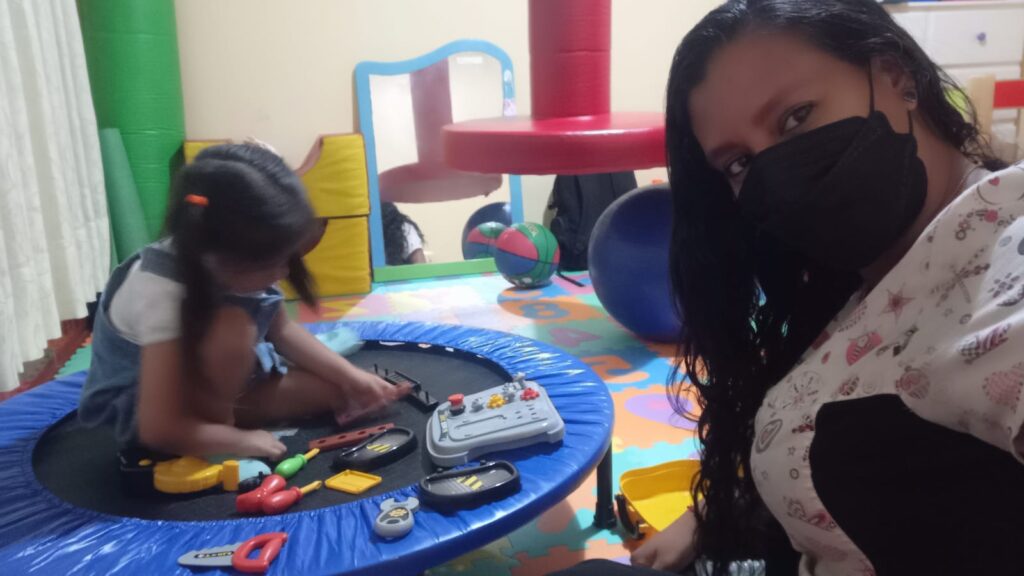
Creating An Entrepreneurship To Improve The Lives Of Others
Erika Beatriz González Correa created Therapy Dec, a business born from a personal purpose and a professional goal: to help people improve their life quality through physical rehabilitation and recovery. “When I studied Physiotherapy and Occupational Therapy, I already knew that I would do a service job, and now I have the commitment to make a positive impact in the lives of my clients, this time, in Lima, Peru”. From the first moment Érika knew that although she would have to overcome some initial challenges, such as getting her clients to trust her knowledge and experience, at a time when the mass migration of Venezuelans was increasing, she would have to continue working internally to face the fear of rejection, that it would still be there, even if things went well.
It was a Peruvian colleague who, without Erika looking for it, helped her make herself known, she helped her demonstrate that she knew how to relieve pain and rehabilitate. From that moment on, her company specialized in older adults, although the pandemic and total confinement forced her to assume the desertion of many of her clients, who could no longer seek services due to the risk of contagion.
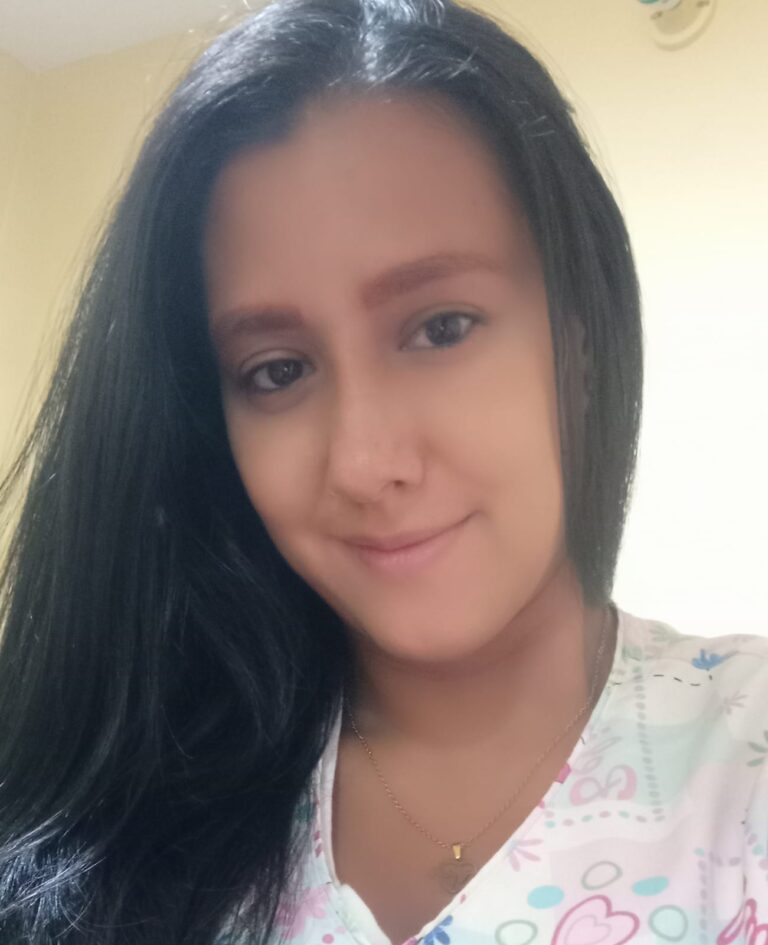
“With this pressure, I remember that I kept thinking over and over again: a Venezuelan woman in Peru, facing a pandemic with confinement like everyone else, the only option left for me was to think and reflect on what capacities I had internally to find an solution.”
Eika began to put into practice new resources, methods and strategies to unlearn everything that she felt was limiting her. “I decided to reinvent myself,” she tells us. “Simply put, I felt like the only option I had was to sell tissues to people who were crying, instead of sitting down and crying myself.”
At that precise moment, she recounts that she received one of the best gifts of her life: an invitation to participate in the IOM business strengthening program for migrants. “Who would think? In a foreign country, support was given to those of us who came from another place…” For the physiotherapist, it was not only the managerial knowledge she learned, but for her entrepreneurship, was the recognition of her values, capacities and how to strengthen their vision of caring for other human beings through mentoring.
What IOM was providing was much more than accounting or organizing. “I gained strength and personal appreciation at a very difficult time” she tells us, “but the most important thing is that thanks to it I managed to be a better businesswoman, mother, daughter, wife, and a better person every day to provide each one of my clients the best I have”. And she continues: “the mentoring provided me with so many valuable tools that seemed especially made for me, and this made me a better person, and with each client I intend to do my best so that they can feel that they made the best decision by choosing me as their therapist. I know that I not only help them recover from an injury, but that I also seek to help them from a human perspective, as life has helped me since I arrived in this wonderful country.” Today Therapy Dec continues to grow not only in clients but also generating jobs so that more people can improve their quality of life.
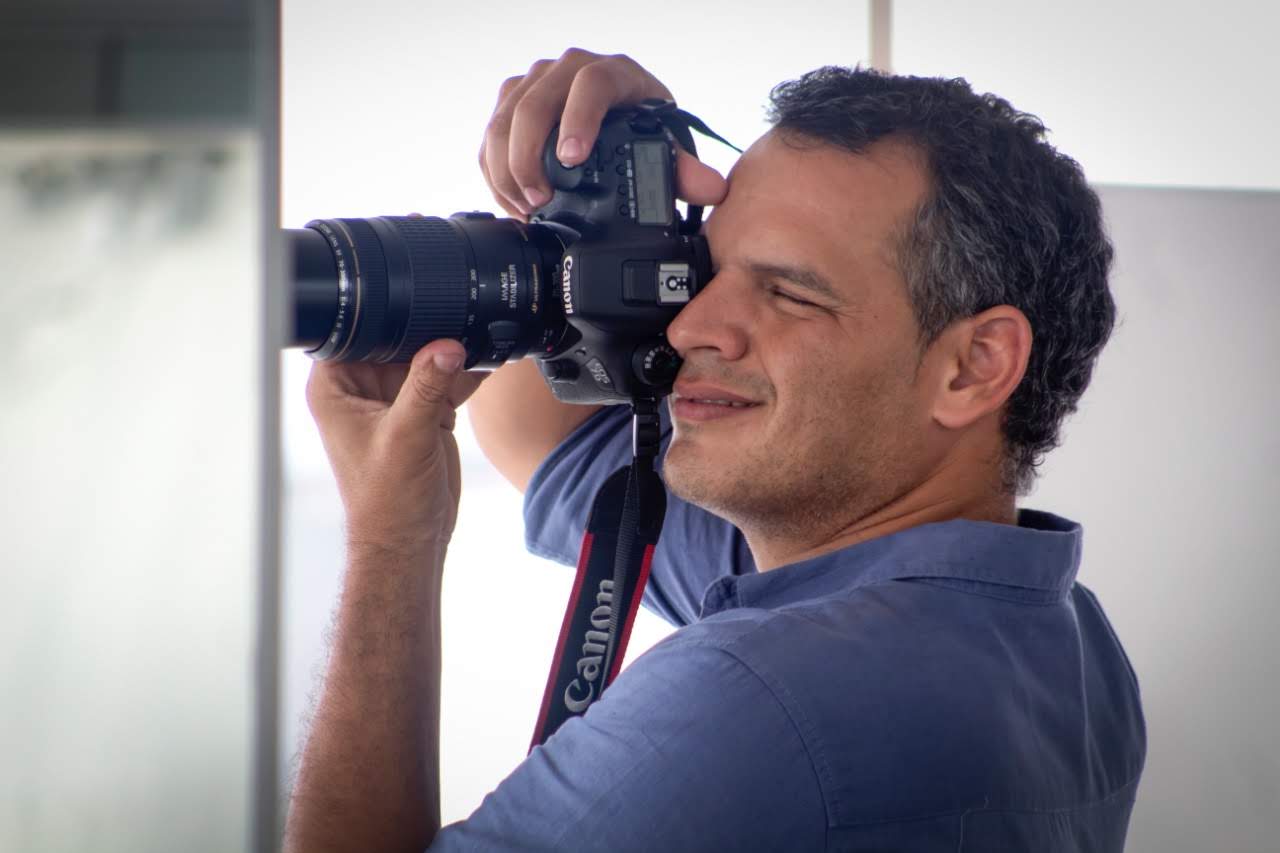
From The Art Of The Image To The Art Of Changing Life
- admin
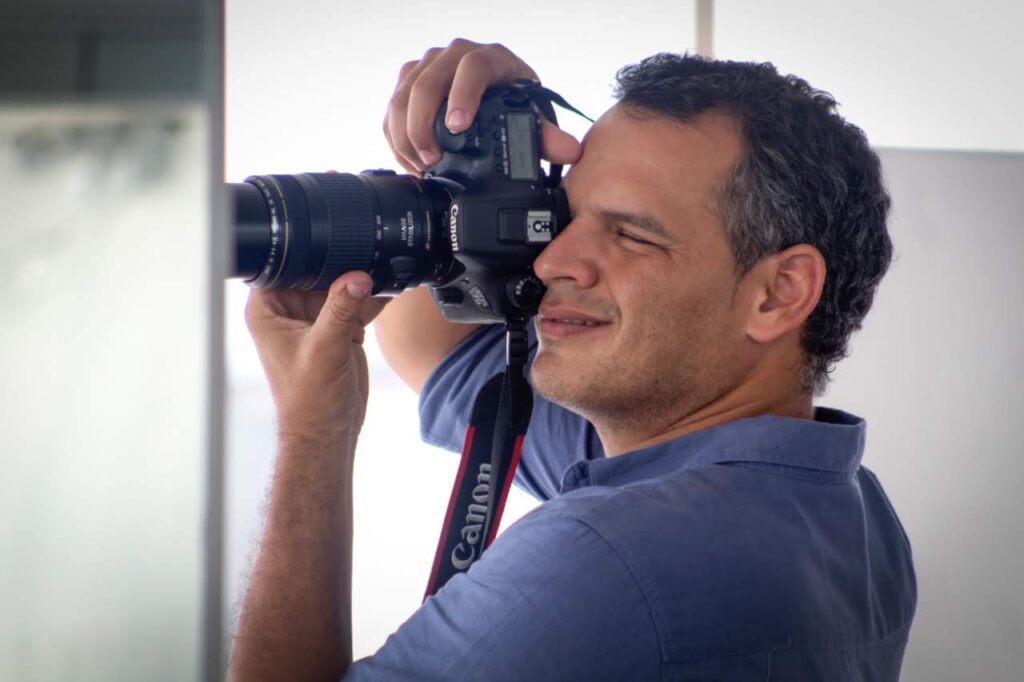
From the Art of the Image to the Art of Changing Life
Gregorio Enrique Torres Hernández’s business is called Creative Workshop and is focused on visual arts, ranging from professional photography for social events, fashion, artistic activities, to personalized photos or contemporary abstract artwork that he paints.
For Enrique, the decision to migrate grew from the need to improve his and his family’s quality of life. “I wanted to give my son better opportunities in life, a future with more options, that he could see in his life possibilities to broaden his interests.”
For months he weighed options, limiting them to the small budget they had. Through his older sister, they were able to leave to Bogotá, but after a month of living there, they found it necessary to look for an alternative destination: Peru.
At that time they were not aware of how being far away from Venezuela was going to affect them emotionally. “I think that one of the most difficult things is arriving in a new country to live and not knowing anyone,” he says, “we were our only support. It took us a few months to overcome that strong feeling of loneliness, although when we did, it somehow opened our minds.”
As he describes it, the fact that for many months they endured feelings of depression and loneliness, didn’t stop them from fighting to start from scratch, no matter what it took.
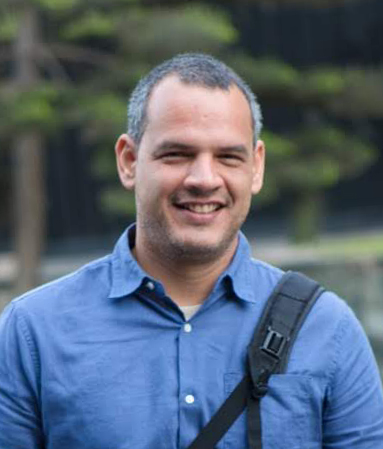
A family friend gave Enrique a link to apply and receive training and support to create a business. He immediately knew that his business should be a reflection of what he was passionate about: creating art. In fact, his innate ability and creativity for painting, to which he had integrated photography at the age of 25, gave him security when it came to knowing the product he was going to work with.
Enrique’s life changed when he found out that he had been selected for the Business Plan workshop. He had the product and would learn the necessary business skills. He is grateful to IOM, for supporting people who migrate in urgent circumstances, and for supporting people in difficult situations to pursue entrepreneurship.
He appreciates that another great gift came later: the possibility of participating in mentorship with people who had migrated like him and his family, who lived in the same city.:
“Those sessions made me reflect, analyze and discover new things about myself. I personally felt that they helped me become a better person. I am not only referring to professionally, but also on a human and personal level. The mentoring made me more empathetic, which resulted in an improvement in my business. I began to understand my clients more and better. They awakened new ideas that I took to the arts workshop. In seeing how my change had a positive impact on my business, I decided to open an extension that will soon see the light: art workshops for children and adults.”
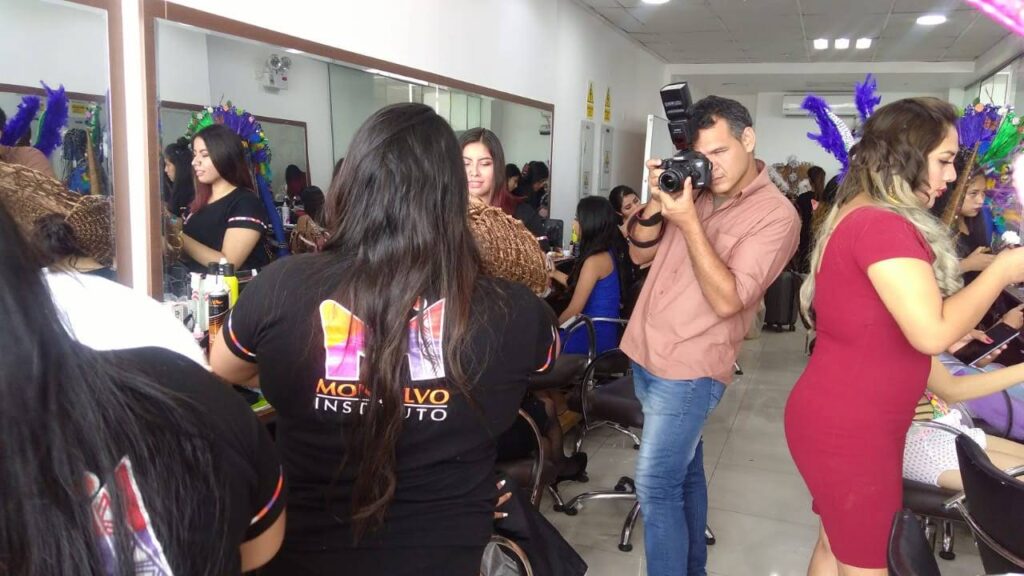
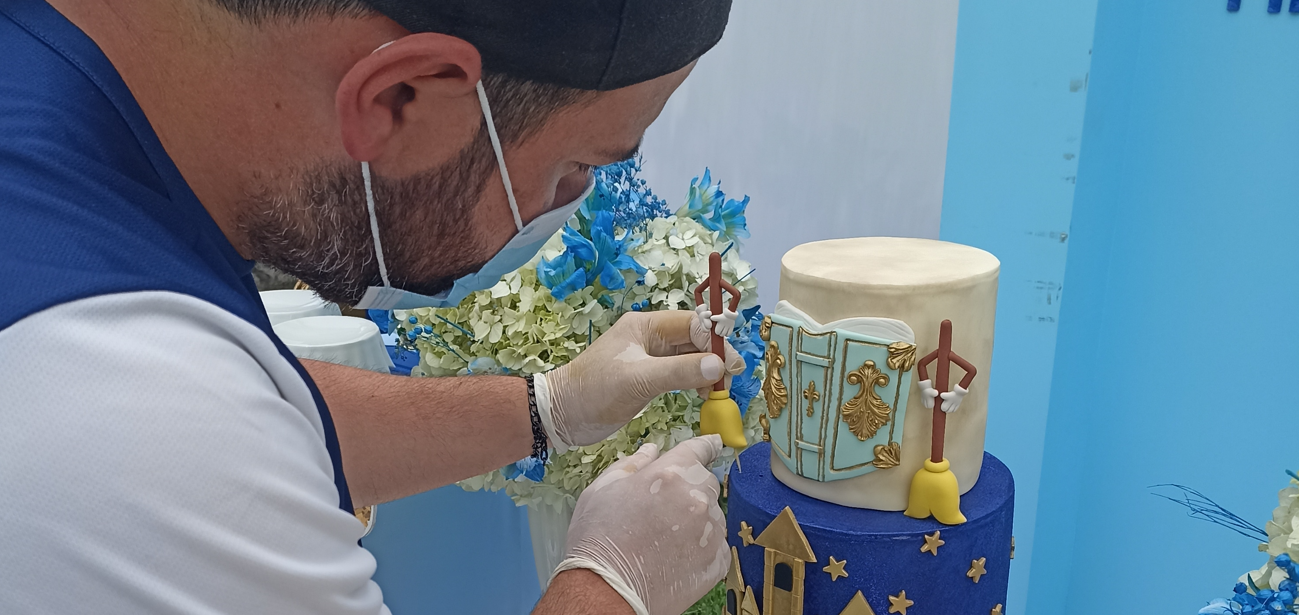
A Story Of Creativity And Resilience
- admin
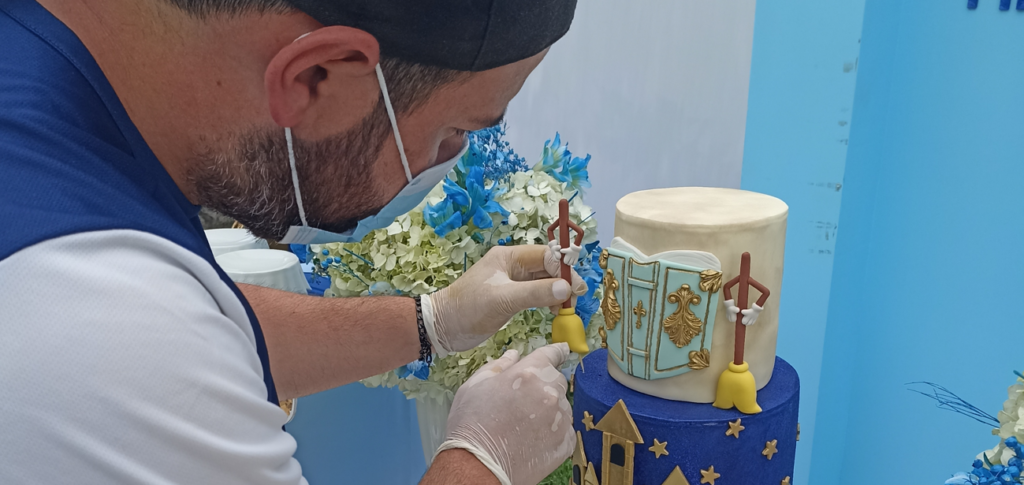
A Story Of Creativity And Resilience
For Ramón Alberto Ortegano, his original cake business with a history, called Amaretto’s, located in the city of Lima, is his great passion. Although it was not easy for this creative university professor to leave his family and his country of origin, starting from scratch in another country, weighing all the situations, was worth it, and as he himself confirms: “the new land received him with open arms.”
Two years after his arrival, even after dedicating many hours of work to his entrepreneurship, the situation of his business unexpectedly changed. Added to the lack of capital due to the abandonment of his partners, which left his company with only an asset of $20 US dollars, was the mandatory confinement due to Covid-19 and the return of strong feelings of nostalgia for his home country. However, Ramón did not allow himself to forget his dream, and transformed his difficult situation in an opportunity to increase his strength, and decided to give forced confinement a new meaning: he studied to implement in his pastry creations the element that until now had ignored: innovative decorations that create emotions in customers.
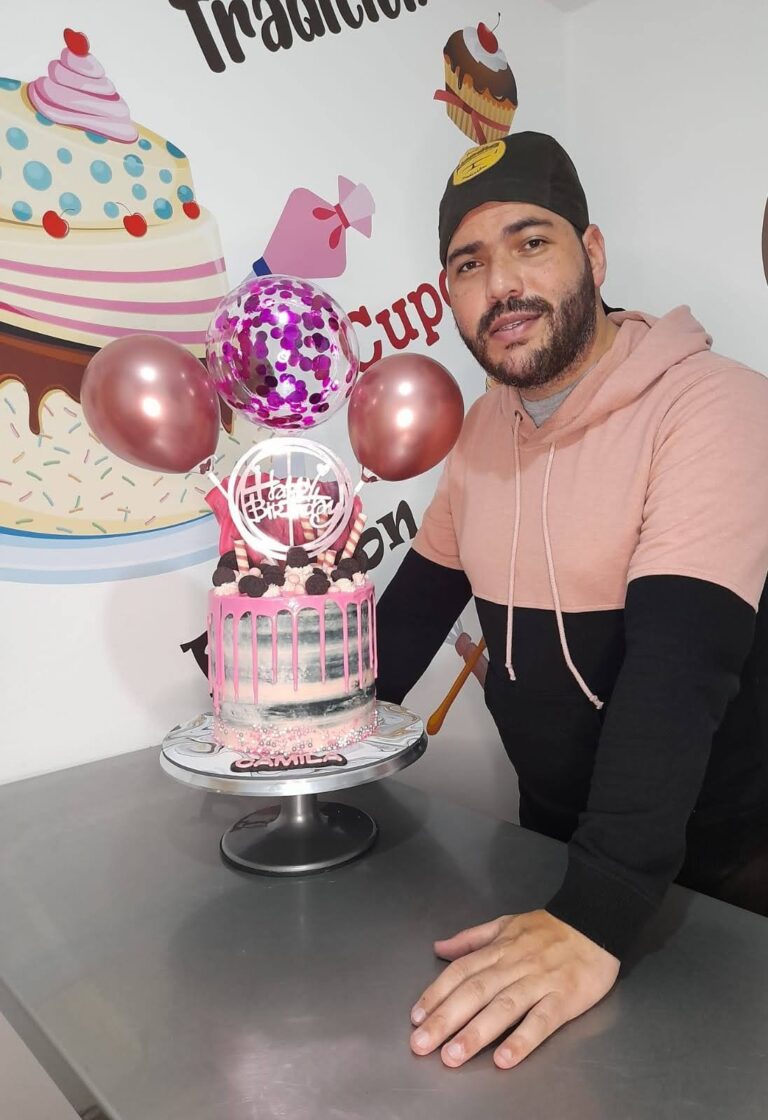
He discovered that the lockdown was the ideal time to dedicate himself to discovering innovative decorations that could add value to his business. This is how Amaretto’s Tradition was born, a new line of “personalized cakes”. The truth is that it did not take long for him to have a large client portfolio, which allowed him to participate in the IOM project aimed at obtaining seed capital, together with the excellent training that he needed for his entrepreneurship. And his dream gradually came true, the business began to expand more and more.
“Another of IOM’s great contributions was the mentoring program, which I personally did not know what it was about, but there is no doubt that it came just at a time when I was feeling very low, wanting to abandon everything, and although there were so many negative things in the environment, I asked myself “what do I lose by doing them?” It was then that Nora, our mentor, with a vibrant energy and professionalism, managed to get me involved in that program without any possible excuse to leave. I remember the first session perfectly: I was decorating a cake, and then she told me: “don’t stop doing what you’re doing, you’ll see that you can still share your thoughts with us.
From that moment, with each exercise of self-reflection, with each strategy of inner strengthening, I was rediscovering myself, and I could explore my new abilities. Mentorships have allowed me to scrutinize very deep inside who I am, and as it happens with computers, I can put my mind in “original version”, valuing the abilities I have in a very short time, and the change is brutal, as they would say in Venezuela . I am deeply grateful.”
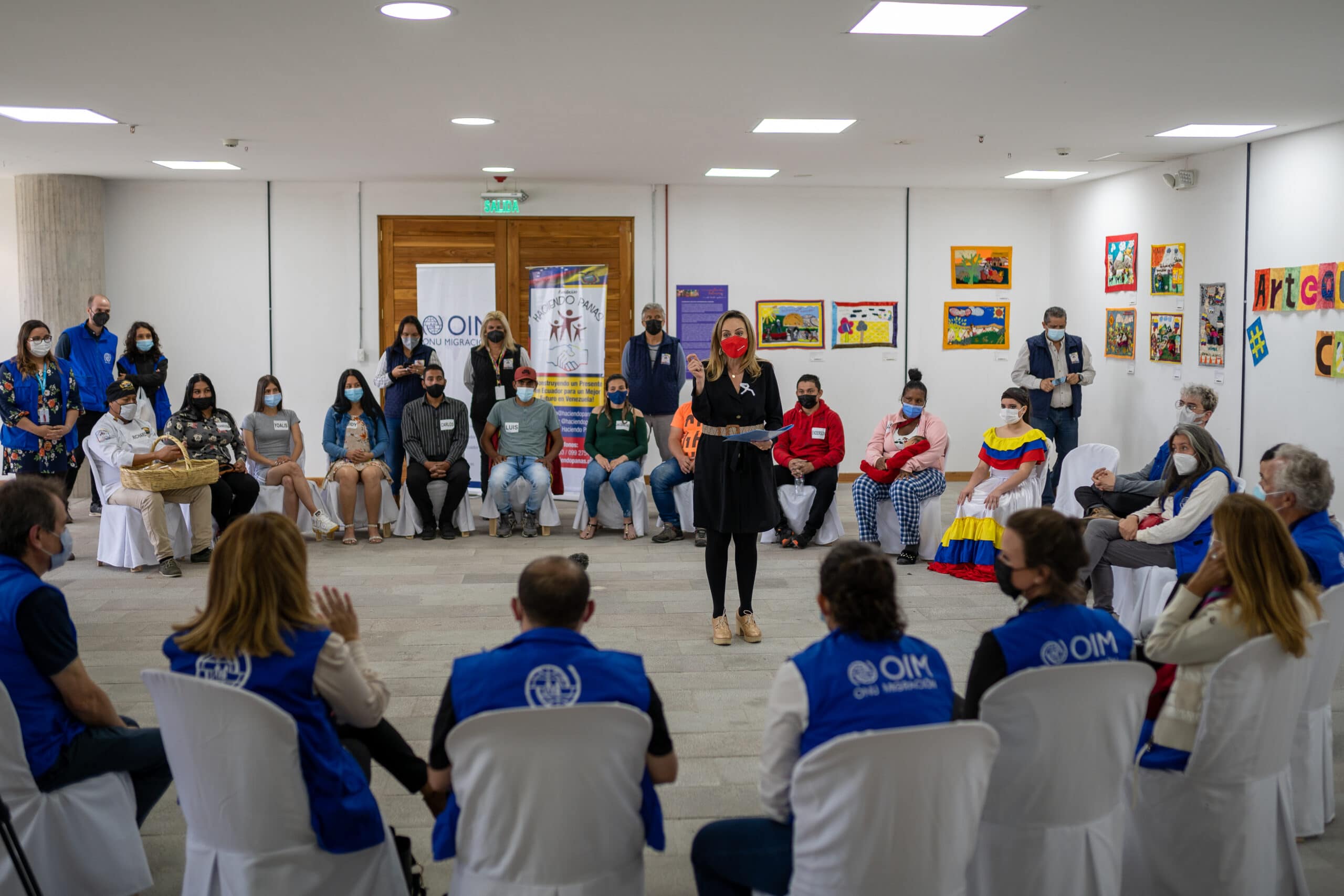
- admin
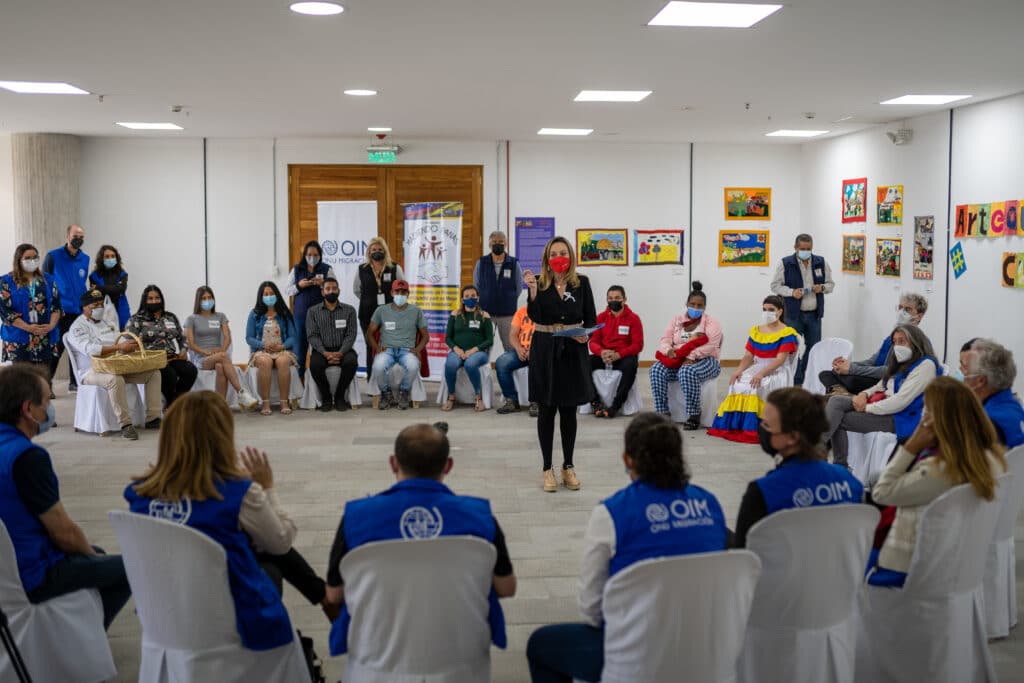
USA for IOM Launches Entrepreneurship in Movement at Summit of the Americas
Los Angeles – USA for IOM (International Organization for Migration) launched Entrepreneurship in Movement today, an innovative program aimed at expanding sustainable livelihoods and positive connections for migrants and refugees and their host communities across the Americas. The program builds on a collaboration between USA for IOM and the Citi Foundation that began in 2019 and aims to help refugees and migrants from Venezuela rebuild their lives with dignity and is currently being implemented in Ecuador and Peru, with the goal of expanding to countries in the Americas.
“Entrepreneurship should be part of the long-term solutions needed to address the consequences of large movements of displaced persons, in addition to the important measures that are put in place to cope with the immediate effects of humanitarian crises,” IOM Director General António Vitorino said during the program’s launch event on the margins of the Summit of the Americas.
The socioeconomic integration of migrants is integral to building a sustainable, resilient, and equitable future is the theme of this year’s Summit.
The Americas are witnessing the largest refugee and migrant movements in the region’s recent history. According to R4V, more than six million refugees and migrants from Venezuela have left their country of origin, with more than five million being hosted in the region. Many Venezuelans possess the skills to contribute to the local economy but struggle with access to employment. Entrepreneurship in Movement creates that access by providing training, social mentorship and coaching to help migrants create sustainable livelihoods through their businesses.
In addition, the Citi Foundation enables migrant entrepreneurs to access seed capital critical to turning their vision into reality. In Ecuador and Peru combined, nearly 700 migrant entrepreneurs have been trained, with more than 500 receiving seed capital for their businesses.
“For the past three years, the Citi Foundation has proudly supported the work of USA for IOM to empower vulnerable migrants and refugees through critical job training, education and entrepreneurship opportunities,” said Florencia Spangaro, Chief Operating Officer at the Citi Foundation. “Programs like Entrepreneurship in Movement help scale entrepreneurship training within the communities that need it most, and we look forward to seeing how it will support migrants and their families in achieving financial stability.”
Entrepreneurship in Movement also strengthens the local economy by launching new businesses in their host community, fostering job creation and social cohesion to fight against xenophobia and promote the shared value of diversity.
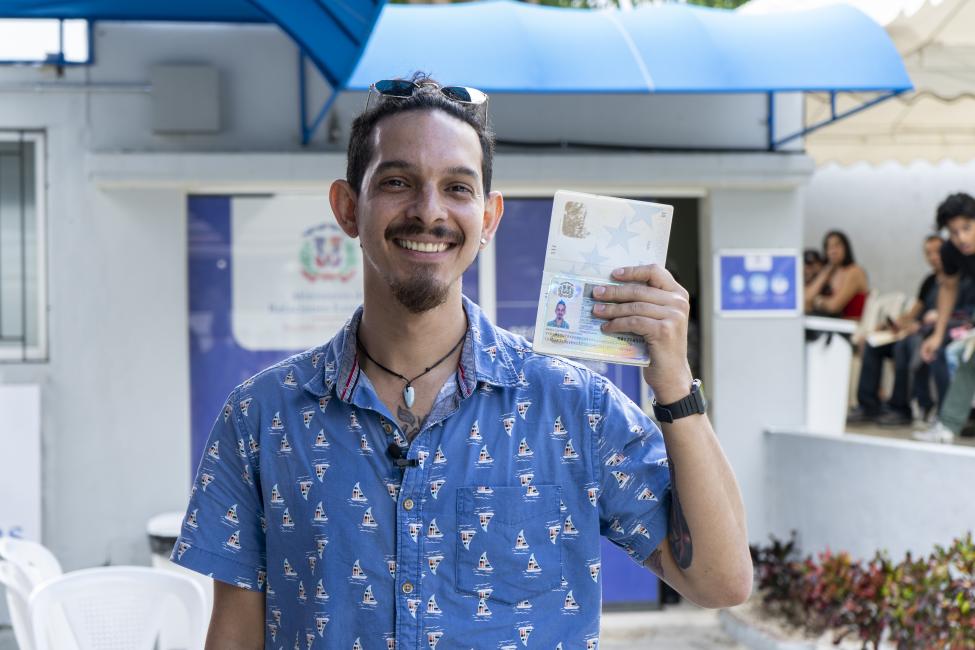

- admin
Nearly 40% of Venezuelans in the Dominican Republic are one step closer to gaining regular status.
The partners of the Interagency Coordination Platform for Refugees and Migrants from Venezuela (R4V) in the Dominican Republic salute the national government for the achievements made during the first year of implementation of the Normalization Plan for Venezuelans (PNV), which seeks to guarantee access to the regularization of Venezuelans living in the country.
To date, more than 40,000 Venezuelans have registered with the PNV and 17,000 have already received their visas (the majority as temporary workers) and thousands of others continue to go through some of the three phases of the plan.
Dominican Republic is the first recipient country of the Venezuelan population in the Caribbean and the eighth in Latin America. Of the more than 5 million people who left Venezuela for neighboring countries in the region, nearly 116,000 chose to seek safety and new opportunities in the Dominican Republic.
Since the start of the PNV in April 2021, the R4V National Platform in the country, co-led by the International Organization for Migration (IOM) and the United Nations High Commissioner for Refugees (UNHCR), in coordination with 15 partner organizations , has accompanied and supported the efforts of the Dominican government to facilitate the access of the Venezuelan population to regular stay, which will translate into better access to basic rights such as health, job opportunities in the formal market and education.
To facilitate the implementation of the PNV, an alliance has been consolidated with eight community organizations of Venezuelans in various cities of the country, which operate the Free Orientation Windows (Ventanillas de Orientación Gratuita), in which information and orientation about the process is provided, and where information is received. documentation of those who apply to the PNV.
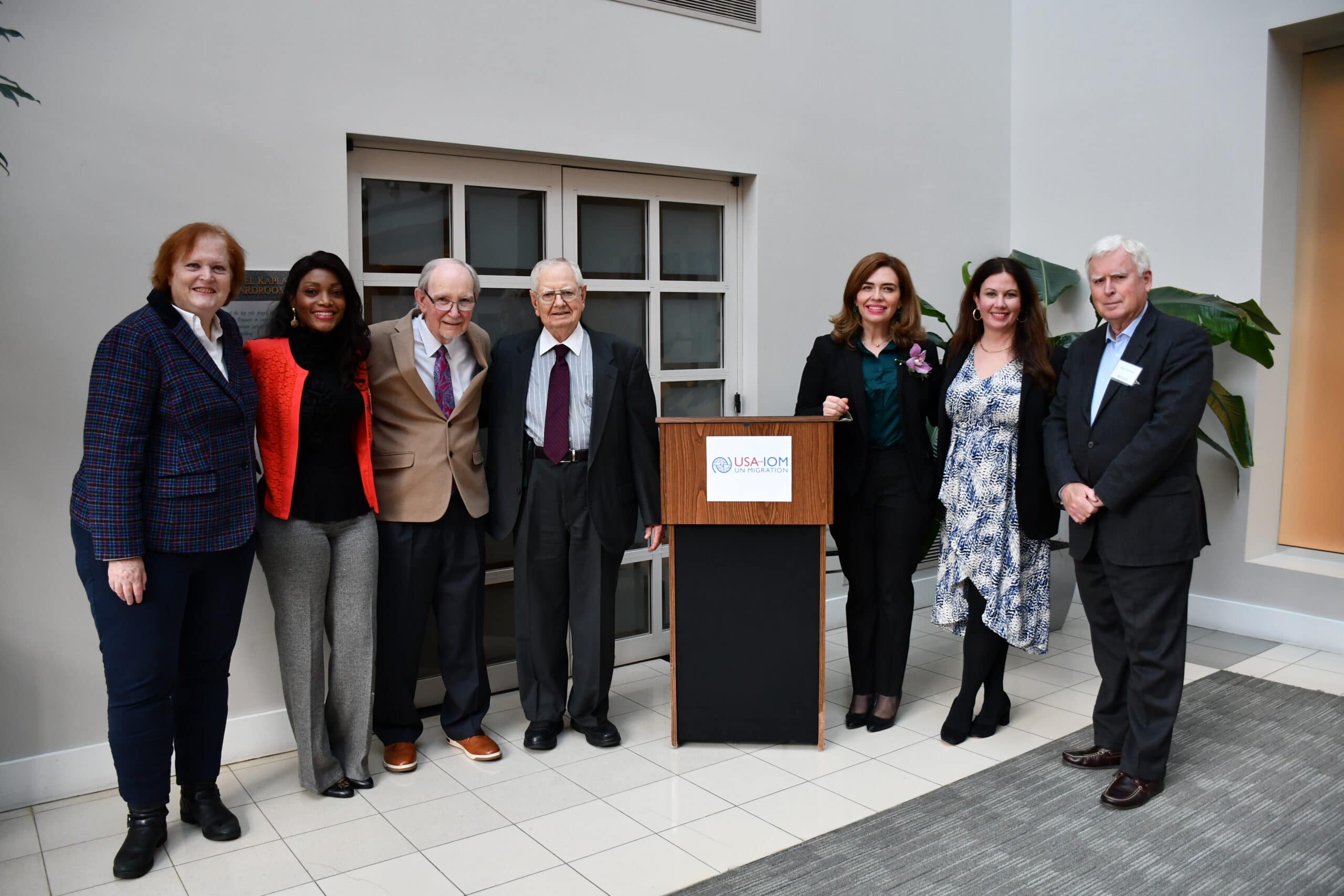
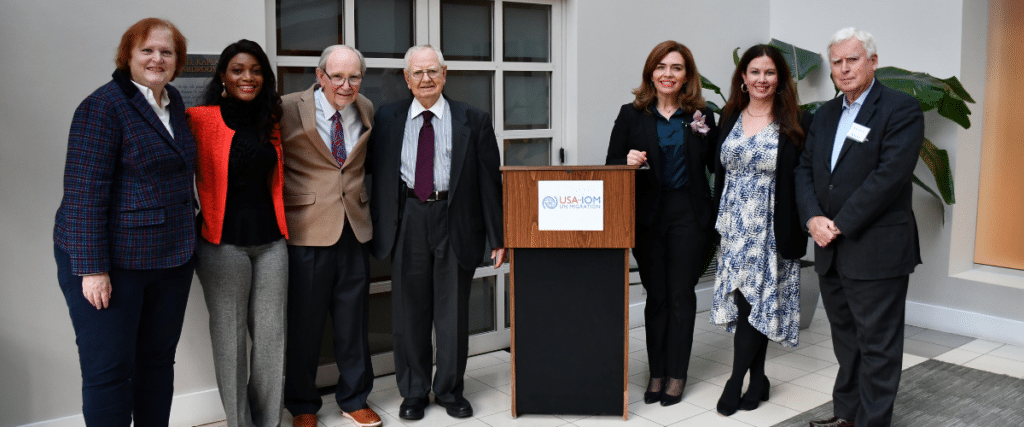
- admin
New Era with a new Leadership at USA for IOM
USA for IOM celebrates the installation of the New Chairman of the Board Luca Dall’Oglio and USA for IOM President and CEO Maria Moreno. Luca Dall’Oglio has worked with IOM UN Migration for more than 30 years, most recently serving as Chief of Mission at IOM Washington as well as the CEO of USA for IOM. Ms. Moreno previously served as the Head of Operations of USA for IOM for the past 10 years.
We also express our deep gratitude for the service our retiring board members James N. Purcell Jr. as Chairman of the Board and Arthur “Gene” Dewey as Vice-Chair that served in our board for more than a decade. Prior to joining the board, Mr. Purcell led modern U. S. refugee and migration policy, management, and programs to other major international refugee and humanitarian organizations such as the International Organization for Migration (IOM), as director-general from 1988 to 1998. Mr. Dewey’s career includes serving as of Deputy United Nations High Commissioner for Refugees in Geneva and Assistant Secretary of State for the Bureau of Population, Refugees and Migration.
For their devotion to migrant and refugee rights, the Board voted unanimously to appoint them as Board Members Emeritus.
Joining USA for IOM as new board members are Anne C. Richard and Dominick Muracco III. Anne Richard served as Assistant Secretary of State for Population, Refugees and Migration during the Obama Administration. She currently teaches at Georgetown University and serves as the Freedom House Distinguished Fellow and Afghanistan Coordination Lead.
Mr. Dominick Muracco III has a diverse experience as a legal and compliance professional as a federal and state prosecutor, litigator, in-house corporate attorney, and government lawyer. Currently he is the Chief Compliance Officer, Vice President and Associate General Counsel at Hertz.

